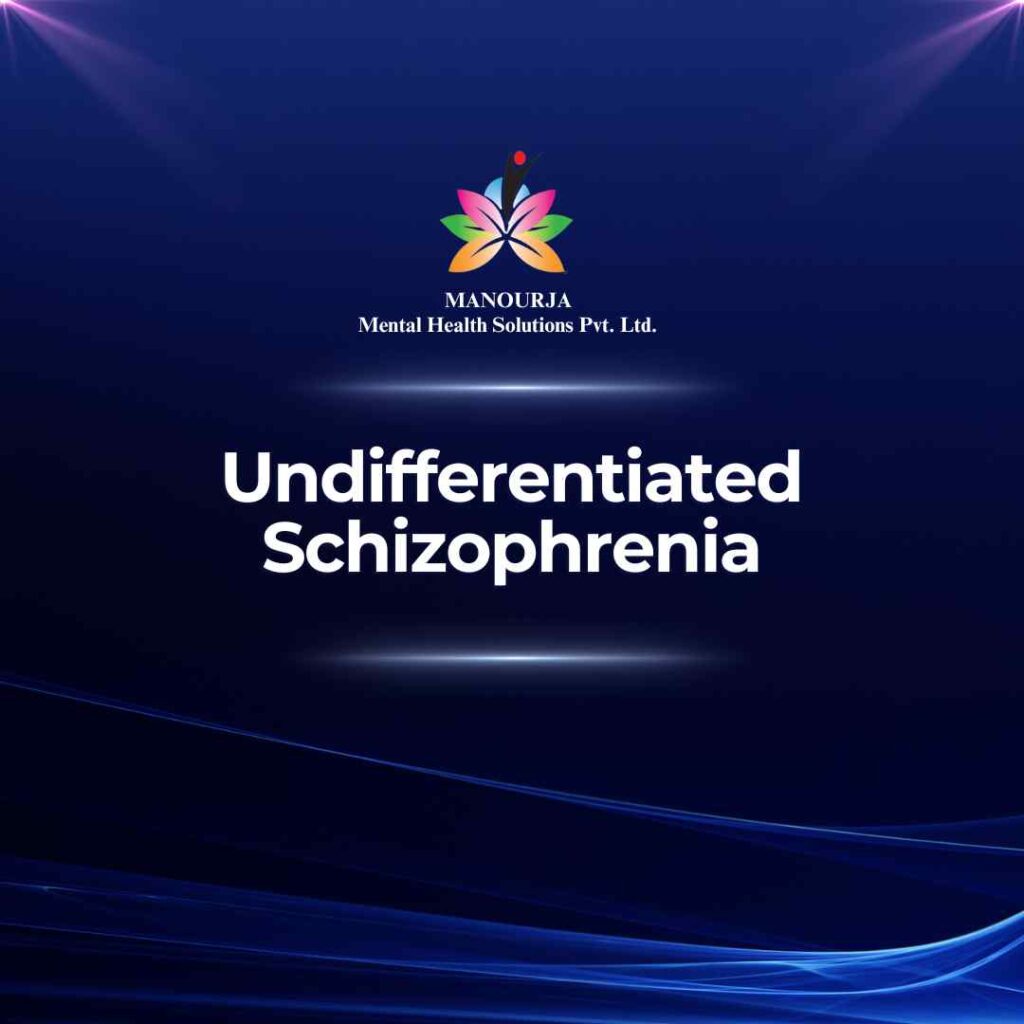Undifferentiated Schizophrenia

Undifferentiated schizophrenia was previously used as a diagnostic label in cases where schizophrenia symptoms did not conform clearly to the defined subtypes like paranoid, disorganized, or catatonic schizophrenia. The term was applied when a patient exhibited general symptoms of schizophrenia but without enough of the specific features of any one subtype to provide a definitive diagnosis. With the evolution of diagnostic criteria in the DSM-5, this subtype has been removed, and such cases are now generally categorized under a broader spectrum of schizophrenia.
Key Characteristics:
- Mixed Symptoms: Individuals might display a combination of symptoms from different subtypes, such as delusions, hallucinations, disorganized speech, catatonic behavior, or negative symptoms, but not enough to be classified exclusively in one group.
- Fluctuating Features: Symptoms may vary over time, presenting a shifting picture that makes it challenging to classify the patient into a single subtype.
- Variable Presentation: The absence of a dominant or typical symptom pattern; symptoms might include emotional blunting, illogical thinking, or incongruent behaviors.
Forms:
As previously noted, undifferentiated schizophrenia is no longer recognized as a separate form or subtype in current diagnostic manuals like the DSM-5. Today, cases that would have previously been classified under this category are considered within the broader diagnosis of schizophrenia, which now emphasizes a spectrum of symptoms rather than distinct categories.
Treatment of Undifferentiated Schizophrenia:
Treatment for what was once categorized as undifferentiated schizophrenia follows the general guidelines for schizophrenia and is tailored based on the predominant symptoms, their severity, and individual patient needs. The approach is comprehensive, involving a combination of medication, psychotherapy, and supportive services:
Antipsychotic Medication
These medications are the cornerstone of treatment and are essential for managing hallucinations, delusions, and thought disorders. Both typical and atypical antipsychotics may be used, depending on the patient’s response and side effect profile.
Ongoing medication management is crucial to find the optimal regimen and dosage while minimizing side effects.
Psychotherapy:
Cognitive Behavioral Therapy (CBT)
Helps patients manage symptoms, particularly delusions and hallucinations, and address thoughts that may lead to distress or dysfunctional behavior.
Supportive Psychotherapy
Aims to build a trusting relationship, enhance coping skills, and improve social and occupational functioning.
Family Therapy
Involves educating family members about schizophrenia, improving communication, and creating a supportive home environment. This therapy helps families cope better and support their loved one effectively.
Social Skills Training
Focuses on enhancing social and interpersonal skills, improving communication, and helping individuals manage everyday tasks more effectively.
Vocational Rehabilitation and Supported Employment
Helps patients develop job skills and find employment, which is crucial for improving self-esteem and independence.
Case Management
Coordinates various aspects of care, helps navigate medical and social services, and ensures continuity of care across different settings.
Hospitalization
May be necessary during acute phases of the illness or when there is a significant risk of harm to oneself or others. Hospitalization provides a safe environment for stabilization and intensive treatment.
Conclusion
While “undifferentiated schizophrenia” is no longer a formal diagnosis, the approach to treatment remains personalized, aiming to reduce the impact of symptoms and improve quality of life. Treatment plans are dynamic, adapting over time as symptoms change, and are comprehensive, addressing both the medical and psychosocial aspects of the disorder.
At MANOURJA, we believe in the transformative power of counseling. Our experienced therapists offer a safe and supportive space where you can explore your thoughts, emotions, and challenges. Through personalized counselling sessions, we’ll work together to develop coping strategies, build resilience, and achieve lasting positive change. Discover the path to a healthier, happier you with MANOURJA counselling services.
MANOURJA Rehabilitation Services
At MANOURJA, we’re dedicated to helping you in rebuild your life, after difficult times. Our rehabilitation services focus on understanding what you need to move forward, whether you’re recovering from addiction, trauma, or any psychological – social challenges. We create personalized plans, that are all about helping you, regain your strength and find hope again. With a caring team by your side, you’ll have the support to make real progress and take steps toward a brighter, healthier future.
